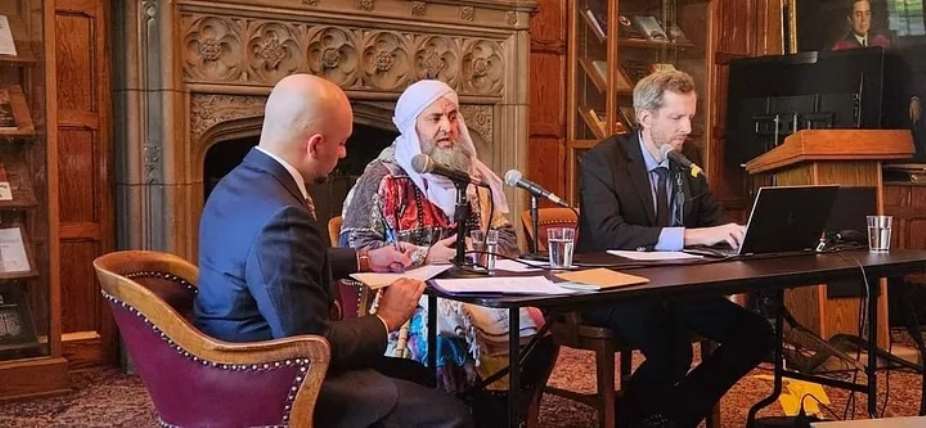The previous months have seen the rise in popularity among the general public of several deep learning models, such as Large Language Models (LLMs), whose most well-known avatar is the chatbot developed by Open AI, ChatGPT.
The surprising effectiveness of these new models, as well as the exponential increase in academic publications in recent years proposing increasingly relevant models, have led several actors in the industry to question the potential dangers of artificial intelligence and the Pandora’s box that AGI — artificial general intelligence — would be.
More than 1000 tech leaders, including SpaceX founder Elon Musk, as well as researchers, have signed an open letter calling for a moratorium on the development of more powerful artificial intelligence. Other prominent actors in the field of AI, like Yan Lecun, Turing Prize winner in 2018 and director of the Meta AI lab, have a more positive and inclusive opinion of AI. Yan Lecun asserts that “AI amplifies human intelligence as the machine amplifies strength”.
The massive adoption by the general public raises new philosophical and ethical questions. Will AI surpass human intelligence? How can consciousness be defined? Could humans be replaced by machines?
At the initiative of associate professor Yusef Casewit, the University of Chicago invited the moroccan sufi master Sidi Mohamed Faouzi al Karkari, founder of the “Karkariya” sufi order, whose books had previously been discussed in earlier seminars, to attend a conference at the university in order to explore how Sufism could help answer the new questions raised by AI and how can AI challenge the hegemony of humans. The other guest, Saad Ansari, a Yale University alumnus and director at Jasper AI, shared his technical knowledge in the field of AI.
During the seminar, the sufi master, Mohamed Faouzi al Karkari, when asked “what are the differences between human intellect and artificial intelligence?”, placed humans at the center of the cosmos by asserting that, from an Islamic perspective, humans would remain the earthly epicenter as God’s vicegerent, regardless of whatever technological progress occurs.
He continued by stating that, in Sufism, knowledge is primarily gained through knowledge of one’s self, and this intrinsic knowledge of the self is gained through spiritual and sensory experience. He quoted at the beginning of the conference the Quranic verse in which Moses is addressed thus: “I have fashioned thee for Myself.” Thus, according to Sufism, humans have been fashioned by the divine in the most perfect form.
He continued by saying “artificial intelligence feeds on what human intellect has produced and thus, regardless of its evolution, it remains dependent on humanity.”

It was argued that AI, like any other vector of information, be it from books or technology, remains a limited expression of the experiences lived by its author/creator. In Sufism, since humans are the microcosm of the macrocosm, a creation resulting from human intellect constitutes a limited part of this microcosm and therefore cannot trouble humans.
Similarly, from the perspective of Sufism, consciousness is defined as self-knowledge, which is subordinate to the spiritual experiences of the individual. An artificial intelligence, whose characteristic is the emission of information based on a cluster of information, cannot experience emotions and be conscious of itself. Thus, Sufism offers an interesting perspective on these issues by emphasizing the importance of ethics and consciousness in the primacy of humans.
The future challenges posed by AI are numerous. The conclusion of the conference was to continue promoting a responsible and ethical use of this technology. However, ultimately, it is crucial to recognize that AI is only a tool, and its use entirely depends on those who develop and use it.
Shaykh Mohammed Faouzi al-Karkari a prominent Moroccan Sufi master, humanitarian activist, and reviver of the North African Sufi tradition his prolific writings, which have been translated into multiple European languages, emphasize the centrality of mystical experience in the search for direct knowledge of self and God.
The most recent English translation of his work, The Sufi Path of Light, explores the role of luminous vision within the broader Islamic tradition, through an active social media presence and international humanitarian projects, the Shaykh’s efforts span an internationally diverse, multicultural, and multilingual network of spiritual seekers.
Evans Attah Akangla






 'Kill whoever will rig Ejisu by-election' – Independent Candidate supporters inv...
'Kill whoever will rig Ejisu by-election' – Independent Candidate supporters inv...
 Ashanti Region: ‘Apologize to me for claiming I owe electricity bills else... – ...
Ashanti Region: ‘Apologize to me for claiming I owe electricity bills else... – ...
 Ghana is a mess; citizens will stand for their party even if they’re dying — Kof...
Ghana is a mess; citizens will stand for their party even if they’re dying — Kof...
 Internet shutdown an abuse of human rights — CSOs to gov't
Internet shutdown an abuse of human rights — CSOs to gov't
 Free SHS policy: Eating Tom Brown in the morning, afternoon, evening will be a t...
Free SHS policy: Eating Tom Brown in the morning, afternoon, evening will be a t...
 Dumsor: A British energy expert 'lied' Ghanaians, causing us to abandon energy p...
Dumsor: A British energy expert 'lied' Ghanaians, causing us to abandon energy p...
 What a speech! — Imani Africa boss reacts to Prof. Opoku Agyemang’s presentation
What a speech! — Imani Africa boss reacts to Prof. Opoku Agyemang’s presentation
 Dumsor: Tell us the truth — Atik Mohammed to ECG
Dumsor: Tell us the truth — Atik Mohammed to ECG
 Dumsor: Don't rush to demand timetable; the problem may be temporary — Atik Moha...
Dumsor: Don't rush to demand timetable; the problem may be temporary — Atik Moha...
 Space X Starlink’s satellite broadband approved in Ghana — NCA
Space X Starlink’s satellite broadband approved in Ghana — NCA
